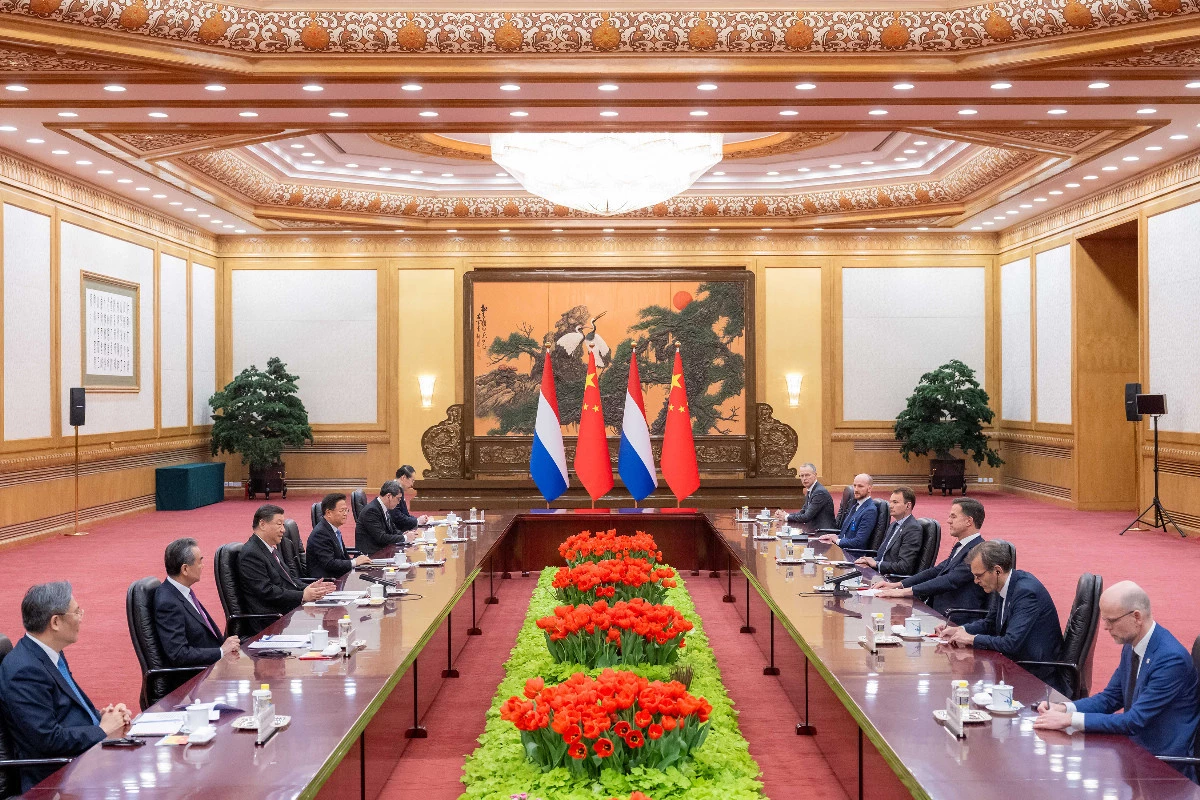
Dutch chip-making machine supplier ASML is one of the world’s leading manufacturers of equipment to make state-of-the-art semiconductors, used in everything from mobile phones to cars.
The sector has become a key battleground in recent years, with the United States and some European countries blocking exports of high-tech chip technology to China over fears of military use.
ASML announced this year that it had been blocked from exporting “a small number” of its advanced machines to China, amid reports of US pressure on the Dutch government.

“There is no way out for ‘decoupling and breaking the chain,’ and opening-up and cooperation are the only choice,” the report quoted him as saying.
Rutte told reporters at a press conference that he couldn’t share details of what had been discussed around semiconductors.
“What I can tell you about our semiconductor sector and companies like ASML is that when we have to take measures that they are never aimed at one country specifically,” he said.
“We always try to make sure that the impact is limited, it’s not impacting the supply chain and therefore is not impacting, let’s say, the overall economic relationship.”